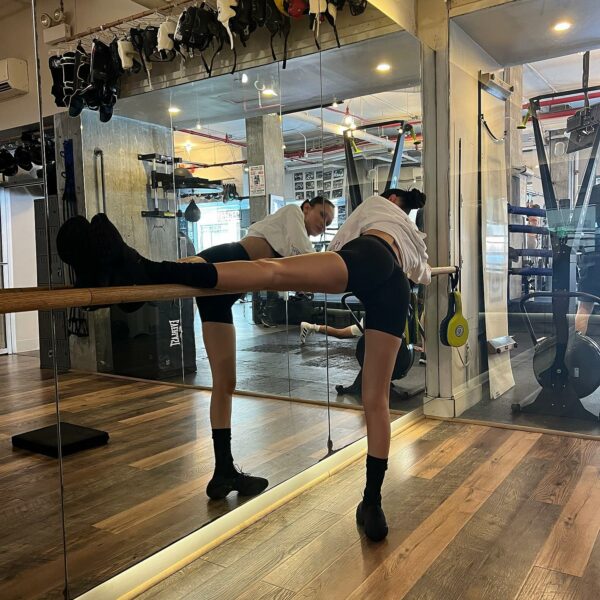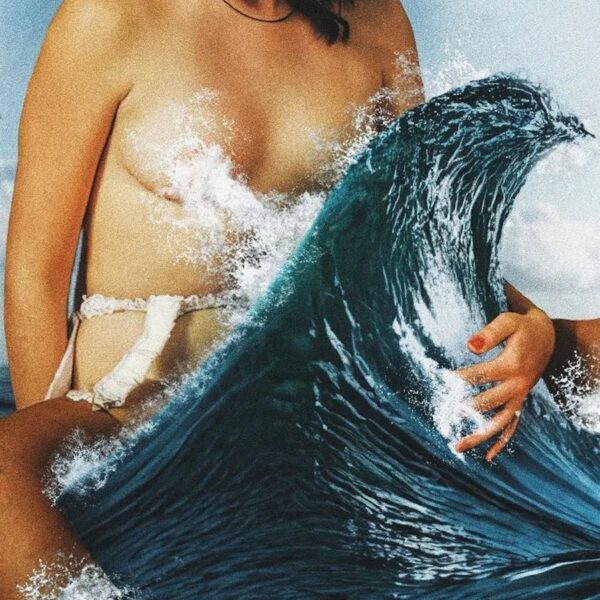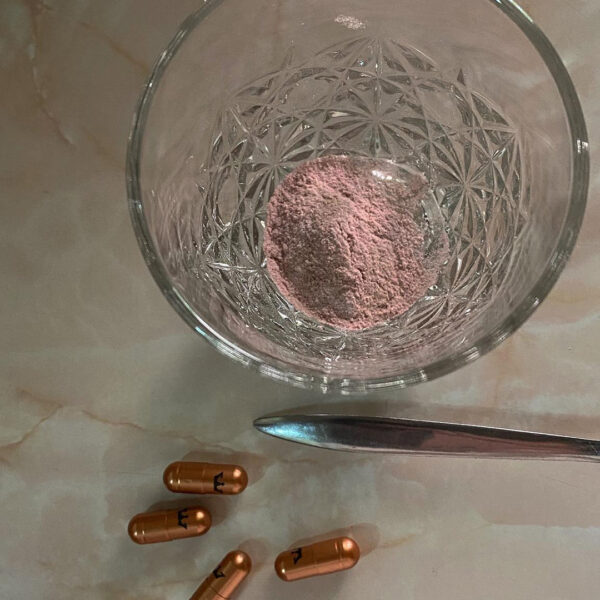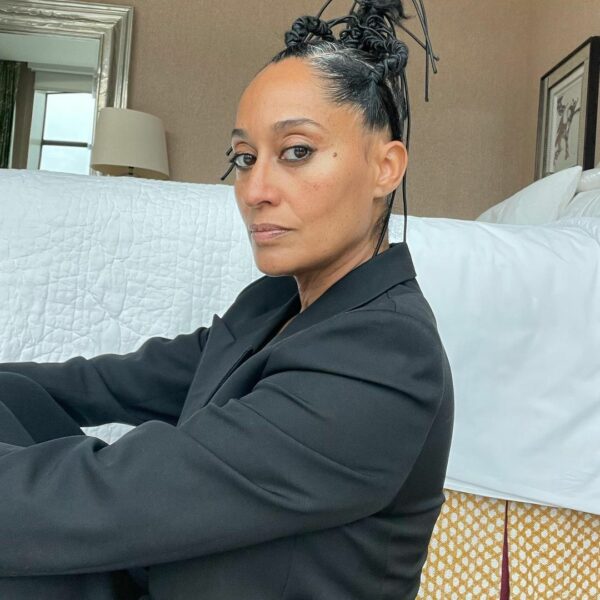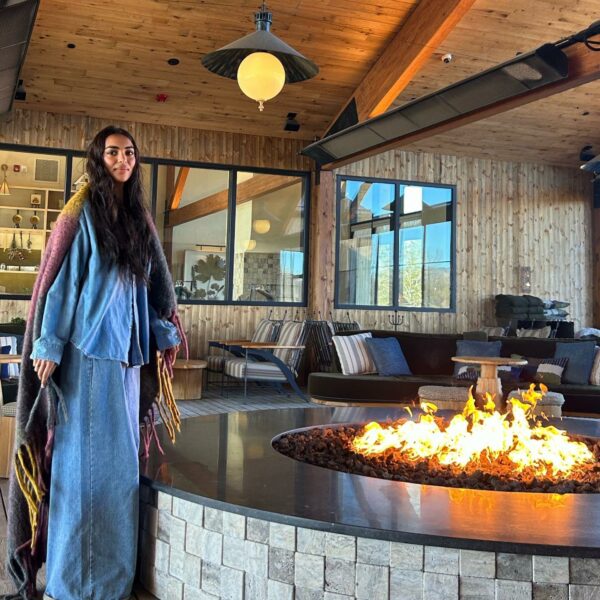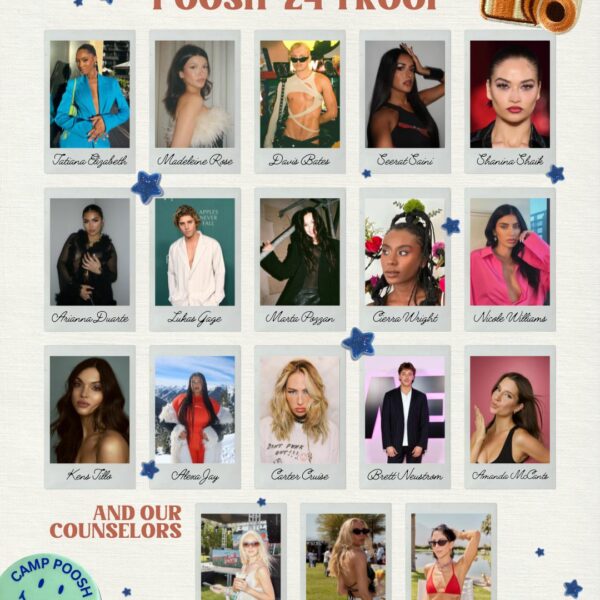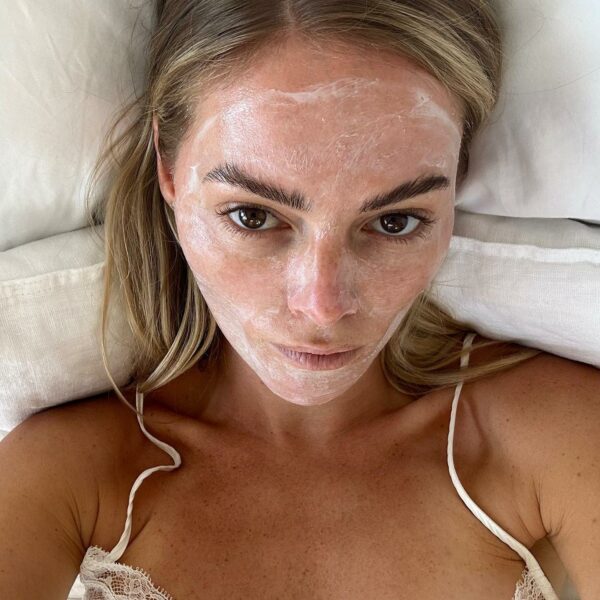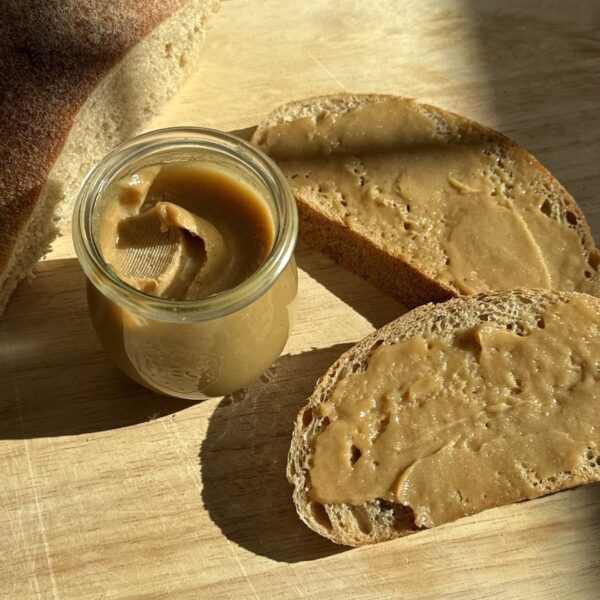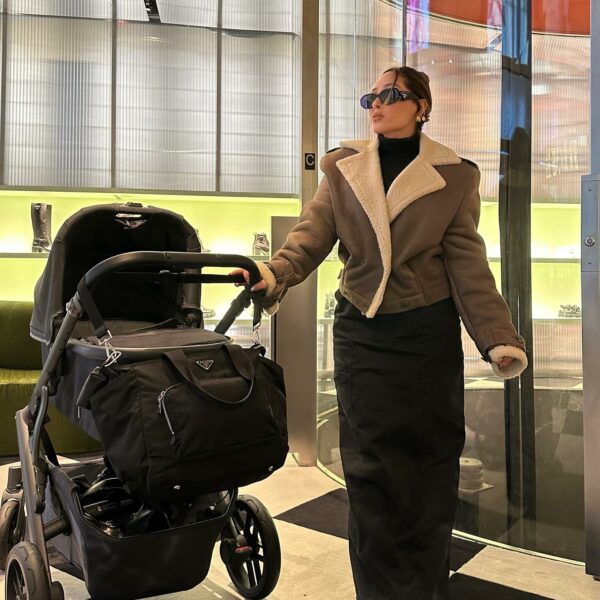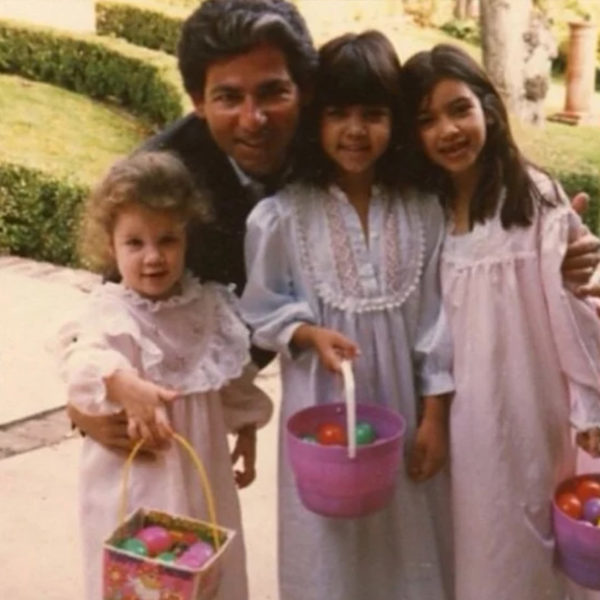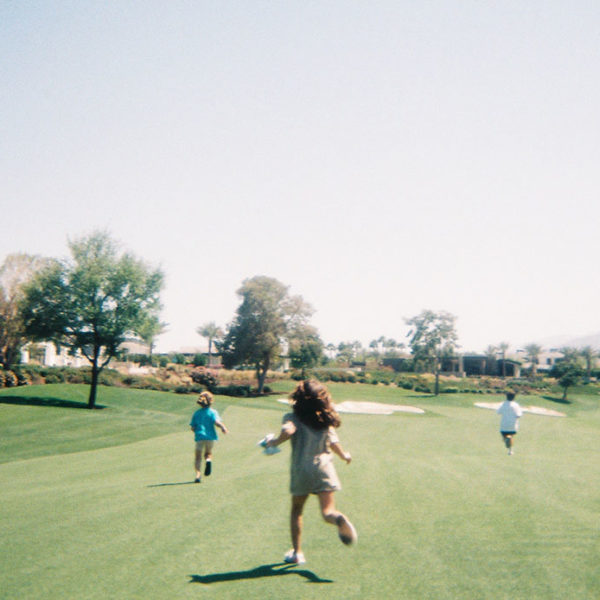
Kourtney Kardashian
There is something so satisfying about “going clean” in life. Detoxing all your cleaning agents, your skincare products, your makeup, your pantry staples … we get a certain pleasure from the control of knowing which ingredients we are putting onto our skin and into our bodies, and making sure it’s all good for us. But what about for our kids?
It’s easy to assume that all products made for kids are perfectly safe for them, because what kind of monster would make a product for a child that wasn’t safe, or had toxic ingredients? Well, that’s capitalism, baby. Children’s products can have all the same parabens, emulsifiers, fragrances, petroleum, dyes, alcohols, and fillers that adult products have, to the point that it’s downright shocking.
This is where things get dicey. Some might argue that kids are so resilient when they’re young—that they are less affected by external stressors and are able to metabolize toxins and get rid of them better, more quickly, and without a second thought. But the other end of the spectrum might say that in these delicate developmental years, we should do everything we can to shield them from these kinds of toxins.
Without helicopter parenting, we tend to go with the latter. The closer to nature, the better, and always within educated reason. We spoke with Kim Walls of BEB Organic, an educator, aesthetician, entrepreneur, and recognized pioneer in the skincare industry, who shares our opinion. She also notes that not everything simple is necessarily good, especially for our babies’ delicate skin.
One surprising notion to consider when buying baby products is how certain ingredients react to our environment. Walls shocked us, starting with the mention of water. She says that our skin is much more acidic than water. To maintain a healthy acid mantle, we should keep in mind that washing with water-based cleansers too often “will likely cause a terribly dry and damaged skin surface.”

And, something we probably all thought was as simple as it gets, castile soap, is a no-no for kids as well. “Though they usually have an ingredient list that is simple and natural,” Walls explains, “castile soaps have a very high pH that can wreak havoc on skin, especially for babies and kids.” She paints us the picture by breaking down the pH scale, which measures from 0 to 14. “Ideal skin pH is between about 4.5 and 6. Pure water has a pH of about 7, and castile soaps have a pH of about 9. The safest ingredient to clean babies’ and kids’ skin is not a single ingredient, but a combination of plant-based ingredients that have a combined pH of about 5.5.”
Since water can change the pH of skin when bathing regularly, it’s important to balance your skin (and your baby’s!) after a bath. Walls notes that “hyaluronic acid, probiotics, and ancient medicinal plants like yarrow and elderberry” are not only safe but ideal for treating both adult and baby acne, as well as eczema. It’s no wonder those are a few of the hero ingredients in the BEB Organic Healing Gel—it’s safe for mama during pregnancy as well! And yes, it might sound crazy to some, but baby acne is a thing. These safe ingredients are crucial during those occurrences, because “typical acne care ingredients like sulphur, benzoyl peroxide, and steroids are less safe during pregnancy and for kids’ skin.”
Walls also notes that just like water seems as though it couldn’t be bad for skin, “There are ingredients that seem like they would be terrible, but in fact they are very safe and valuable when used in the right combination with other ingredients.” It all depends on how they react and work together with other ingredients. For example, Walls says that hydrogen peroxide and sodium citrate are common ingredients in natural skincare, and clean beauty companies use them to change the pH of a formula. “Though sodium citrate is harmful when used alone, it can be the perfect partner to balance out the pH of other ingredients in beautifully formulated skincare products.”
We are typically averse to the word “alcohol” in our ingredient lists because we associate it with drying. But Walls assures us that phenethyl alcohol is actually a powerful, healthy, and safe skincare ingredient. To soothe the skeptics, she explains that “in the world of biochemistry, the word alcohol simply means that something contains a hydrogen and an oxygen.” It’s often used to replace more questionable preservatives like parabens and phenoxyethanol because it’s safe, smells nice, and is derived from rose petals.
Obviously, there is a lot of science behind every ingredient, so getting familiar with them is something we should all be studying up on, starting now. But since we don’t expect everyone to know as much as an organic specialist or biochemist, Walls has kindly outlined her rules of thumb. Always avoid products with these listed in the ingredients: fragrance, petrolatum (other names include petroleum jelly, mineral oil, or paraffin), parabens, and phenoxyethanol. Write them down, or put this list in the notes on your phone. We take her word for it.

The content provided in this article is provided for information purposes only and is not a substitute for professional advice and consultation, including professional medical advice and consultation; it is provided with the understanding that Poosh, LLC (“Poosh”) is not engaged in the provision or rendering of medical advice or services. The opinions and content included in the article are the views of the interviewee only, and Poosh does not endorse or recommend any such content or information, or any product or service mentioned in the article. You understand and agree that Poosh shall not be liable for any claim, loss, or damage arising out of the use of, or reliance upon any content or information in the article.
Up next, be the first to know our weekly content and sign up for our Poosh newsletter.






